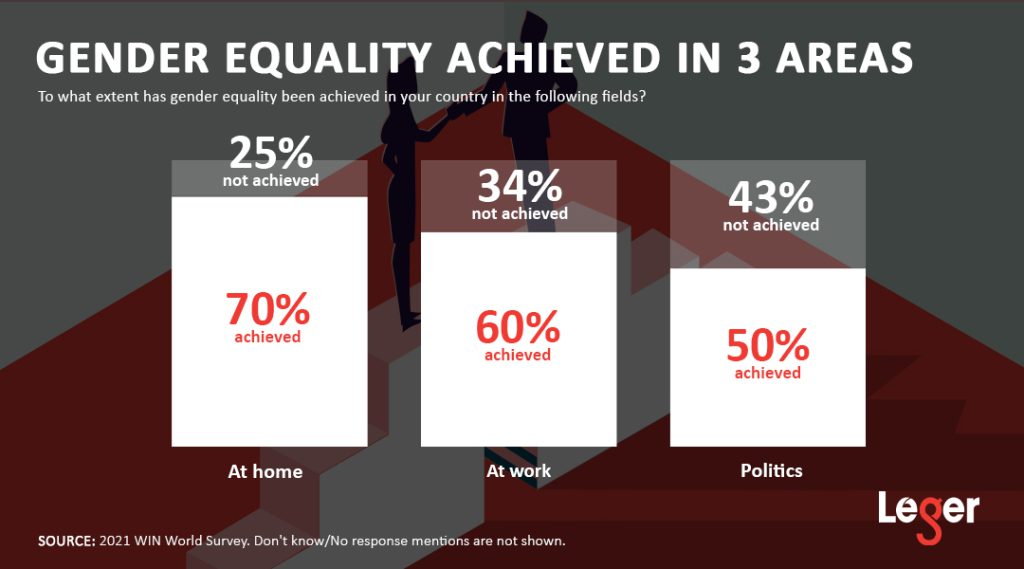The 2021 edition of the WIN World Survey (WWS) explored perspectives on gender equality in 2021. This survey is conducted annually by the Worldwide Independent Network of Market Research (WIN International), of which Leger is a founding member.
KEY HIGHLIGHTS: WIN WORLD SURVEY ON GENDER EQUALITY IN 2021
- 70% of respondents think gender equality has been achieved at home in their country (including 73% of men and 68% of women).
- 81% of Canadians and 71% of Americans think gender equality has been achieved at home in their country.
- 60% of respondents think gender equality has been achieved at work in their country (including 64% of men and 55% of women).
- 66% of Canadians and 56% of Americans think gender equality has been achieved at work in their country.
- 50% of respondents think gender equality has been achieved in politics in their country (including 53% of men and 46% of women).
- 58% of Canadians and 47% of Americans think gender equality has been achieved in politics in their country.

As noted by Vilma Scarpino, President, WIN International, “Reaching equal opportunities and rights for men and women, as well as reducing the level of violence experienced, is an effort that needs to be encouraged by many different actors within society, men and women together, and in different environments, as the WIN World Survey shows. Gender equality at home does not imply that the same equality has been achieved at work or in politics, not even in the same country. This points towards the need to involve as many actors as possible in promoting and encouraging equality. And it is not only about involving different actors, but it is also about acting on different levels too: gender equality is an international goal that needs to be faced also from a local and a national level, as shown by differences and slight improvements in some countries when it comes violence experienced.”
Read WIN’s press release to learn more.
SURVEY METHODOLOGY
From October 15 to December 18, 2021, over 33,000 people from 39 countries were surveyed using CAWI/CATI/F2F/TAPI online survey methods. Leger was responsible for data collection in Canada and the United States.
